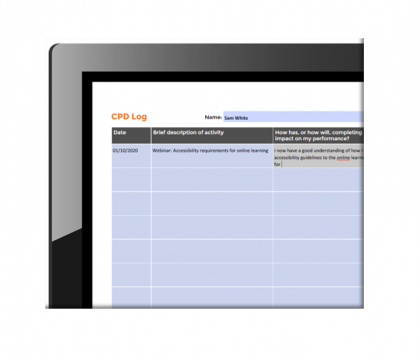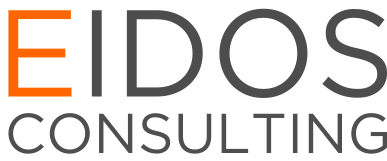This is the first of a two part look into career progression for remote workers. This first article focuses on the employee, with the second looking at what they employer can and should do to maintain a fair and equal opportunity for remote and on-site workers alike.
We would love to hear of your experience and opinions on the topic covered in these articles. make sure to leave a comment on this post. Enjoy the article!
The world of work was presented with a huge number of challenges as a result of the coronavirus.
Perhaps one of the major shifts in working life that we experienced over these last few months was the move to working from home. Where possible, companies and individuals looked to continue their activities under isolation, meaning that the kitchen table or guest bedroom soon turned into your regular working environment. For some this may have been an entirely new experience, whereas for others this was just a continuation of their normal working practices. Either way, in many cases it was met with a certain level of success, meaning that it appears likely be more widely adopted as a way of working in the future. One question does remain, however when it comes to career progression, are remote workers as likely to receive a promotion as their on-site colleagues?
Career progression to many is the recognition and reward for the efforts they have made in their work, and by nature is a competitive activity. Other colleagues or external candidates are also looking to advance their career, so how are you meant to make yourself stand out from the crowd when you are not there in person? Here are some of the ways you can make sure to position yourself in full view when it comes time to move up the next step of the career ladder.
Communication is key
Let us start with this one, as this is probably the most crucial aspect of any remote working, let alone when seeking promotion.
The major difference between on-site workers and those that work remotely is their visibility. Both may have the same level of output, but if one can be seen doing the work where the other cannot, they may stand a better chance when it comes time for that promotion. As such you want to make sure to keep yourself and the work that you are doing visible. Ensuring regular contact with your line manager to discuss your targets for the week and the work that you have produced will keep you and your work visible. Regular communication with you colleagues will also ensure your involvement with group activities and decision making. However, make sure that you strike the right balance between not enough communication and too much, which could be seen as over-bearing.
The type of communication is also important to consider. Many people use email as their main form of communication, believing that it ticks the box of “staying in touch”. Email, however, is a very impersonal form of communication. Make the effort to pick up the phone or arrange video calls to add the personal touch to your communications.
Let your work do the talking
There is more to consider than just your work when it comes to being considered for a promotion – your suitability for the role, personality and general capability (or at least willingness to develop your capability) for the new role all being contributing factors. Having said that, applying yourself to the work of your current role and being an active team member is going to demonstrate a number of desirable traits that will put you in a good place to be considered for that next career move.
Provide yourself with every opportunity to make your work stand out – create a home environment that is conducive to maintaining focus and motivation (removing distractions as much as possible) and ensure you manage your time effectively to focus on your work. Importantly, think of ways that you can innovate that consider how your work is going to be used – could the end-user also be working from home, where something like an eBook or interactive PDF would be easier to digest than a report that needs to be printed? The ability to innovate with your work may provide opportunities for your company to realise cost savings or reduce the time they spend on certain activities. It may also provide them with additional revenue streams, which will certainly mean that your work is recognised. As with anyone that is looking to progress up the career ladder, you present yourself as much better candidate if you look to go above and beyond in your work. Being remote should not change this, but present you with an opportunity to make sure your work stands out, even without your physical presence in the workspace.
Remain visible
Although similar, maintaining communication and remaining visible are not always the same thing, especially when it comes to career progression. The visibility that supports your career progression is visibility of you taking ownership, responsibility and visibility of you as a person and your attributes. As a remote worker, visibility of yourself and your work may be greatly reduced purely for the reason of not being in a physical on-site location. To ensure this is not a detriment, maintain your visibility through engaging with others, making a conscious contribution to group activities and decisions, and make sure to delivery the work that has been assigned to you.
A great way to increase your visibility when working remotely is to put yourself forward for additional activities or responsibilities. Whether this be inclusion in other projects, or making long-awaited improvements to ways of working that makes a positive impact to the rest of your team, taking on additional responsibilities demonstrate you possess key attributes that put you forward as a good candidate.
Agree your personal objectives, and meet them
It is always good practice to reflect on what you want out of your career and to set yourself smart objectives to get you there. Your line manager plays an important role in this process as, if they are not aware of your personal objectives and development goals, they will be unable to support you in achieving them.
Personal Development Reviews (PDR’s) are a commonly used activity for employees and employers to agree their objectives and identify how these will be achieved. These become even more relevant when on-site interaction is reduced or non-existent. Make sure that your line management are aware of your personal goals and agree a way that these can be supported and developed that meet the needs of your role and the business. Once you have these objectives, focus on completing them to the best of your ability, and continue to measure your progress with your line manager. This will keep your efforts visible and achievable, and ensure you continue to develop yourself as a suitable candidate for the career path you have chosen.
There are many aspects which make an individual a stand-out candidate when it comes time for a promotion. Although the points we have raised in this article are clearly only scratching the surface, they are key elements to ensuring that as a remote worker, you receive equal treatment and consideration as your on-site colleagues or other external candidates.

Document your development
Maintaining a Continuing Professional Development (CPD) log gives your ownership of your learning and proves your development to others. To help you with this, we offer a free CPD log template.
Download CPD log template
